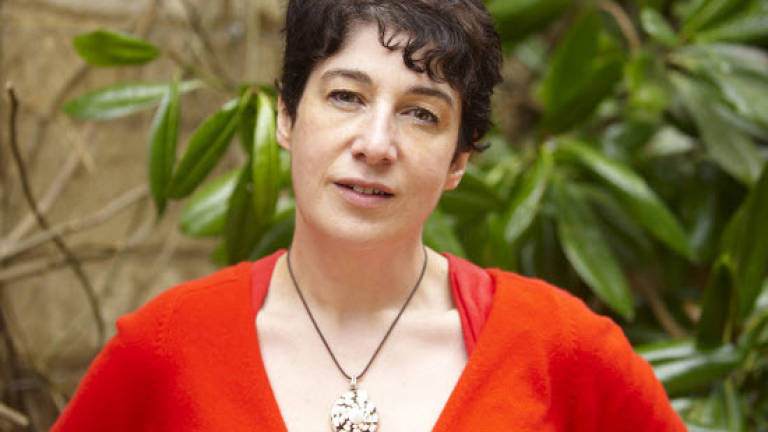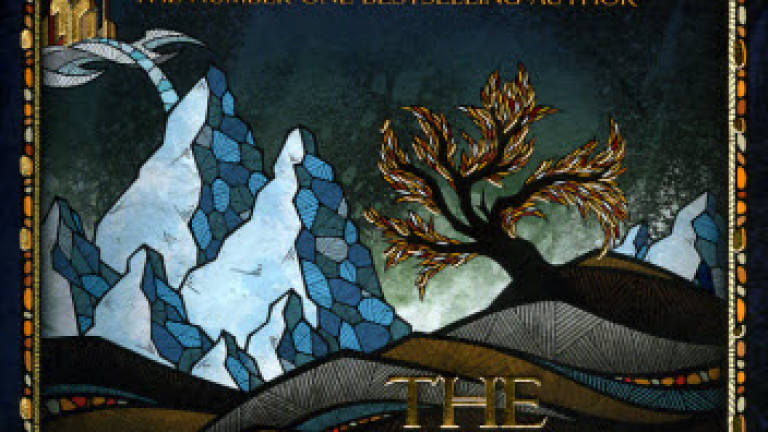Sympathy for the devil


ENGLISH author Joanne Michèle Sylvie Harris has written many books that revolve around Norse legends, the latest being The Gospel of Loki: The Epic Story of the Trickster God (2014).
Harris was an accountant-turned-school teacher when she published three books – The Evil Seed (1989), Sleep, Pale Sister (1993) and her award-winning Chocolat (1999) – before retiring and becoming a full-time author.
Chocolat, a darkly magical modern folk-tale, won the Creative Freedom Award in 1999 and was shortlisted for the 1999 Whitbread Novel of the Year Award.
The book was turned into a movie of the same name in 2000, starring Juliette Binoche and Johnny Depp, and directed by Lasse Hallström.
The success of the film – which was nominated for five Academy Awards, eight Baftas, and four Golden Globes – brought Harris global recognition, and since then, her books have all hit the bestselling lists.
Harris also wrote two sequels to Chocolat, two collections of short stories, two French cookbooks (co-written with Fran Warde) as well as a number of dark psychological thrillers.
Her love and fascination for Norse mythology became evident when she wrote Runemarks (2007), followed by its sequel Runelight (2011).
The Gospel of Loki: The Epic Story of the Trickster God (2014) continues with this Norse theme. The story has Loki the trickster narrating the rise and fall of the gods of Asgard.
In an email interview, Harris, 52, talks about The Gospel of Loki, her fascination with Norse gods and also her upcoming projects.
Were you always a fan of Norse legends?
“Always. I first discovered the Norse myths when I was seven. I already enjoyed mythology, but somehow, the Norse legends, local as they were, spoke to me most strongly.
“Perhaps, [it was] because of the characters, which are so strongly defined, or maybe because of the sly humour that runs through even the bleakest of tales.”
Why Loki? Why not Thor or Odin or one of the goddesses?
“Because Loki has always been the villain of the piece, and yet we know next to nothing about him.
“His origins, his motivations are all wholly mysterious, and yet he lies at the heart of almost every legend.”
The Gospel of Loki reminds me of The Gospel of Judas. Was this written because everyone (even villains) have their side of the story to tell?
“I think villains are especially interesting, partly because they tend to be more complex than heroes.
“Loki’s story has all the elements of a tragic drama. He is a central figure among the gods: his arrival among them strengthens them, and yet, he is never one of them.
“Ultimately, their inability to accept him as well as his inability to understand their ways bring about his own destruction, and that of the world.
“And yet we have no idea why. It’s fascinating.”
Did you write about Loki considering the character’s popularity due to the Thor movies from Marvel Films?
“No, I’ve been writing about Loki and the gods since long before the first Thor movie came out. My book, Runemarks, came out seven years before Thor.”
A lot of what Loki does is based on insecurity and vengeance. On that aspect he is more human than god-like. Is that what appeals to you?
“All the Norse gods have human aspects. They made awful mistakes and terrible life choices; they fall in love with the wrong people; they suffer accidents; they even die.
“Loki, in spite of his superhuman powers and his intelligence, goes through many of the stages an adolescent goes through: insecurity; rebellion against authority; anger; self-loathing.
“That’s why we can understand him as well as condemn his actions.”
The Norse legends make for fun reading. Do you think that is the reason?
“Because, in spite of the difference in cultures, we can identify with the characters.
“And because, in spite of the bleak message (the world will one day be destroyed, and all the gods with it), the stories can be very funny.”
The Hindu religion has many gods too. Why do you think that religion survived while Odin and his gods now live on only in comic books and movies?
“There are still plenty of people in Iceland and Scandinavia that worship the old gods.
“But the militant version of Christianity that invaded Europe in the 8th and 9th centuries did its best to wipe out the indigenous beliefs.
“The fact that it has not done so altogether is proof of their strength.”
What are you working on now and when will that be out?
“A book of 100 short stories, Honeycomb, illustrated by Charles Vess, which should be out in autumn 2017, and a sequel to The Gospel of Loki, which I hope will be finished in spring.”